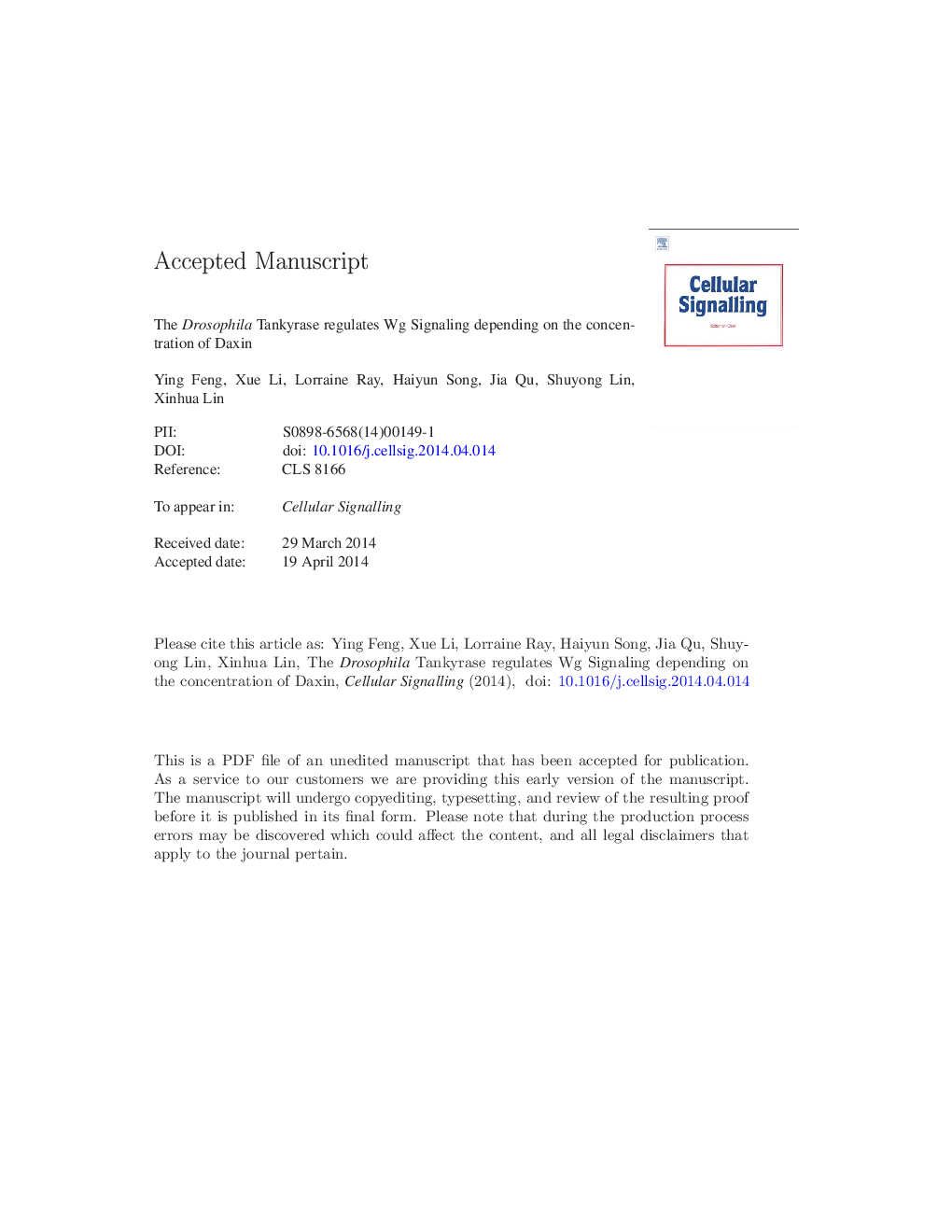| Article ID | Journal | Published Year | Pages | File Type |
|---|---|---|---|---|
| 10816024 | Cellular Signalling | 2014 | 35 Pages |
Abstract
The canonical Wnt signaling pathway plays critical roles during development and homeostasis. Dysregulation of this pathway can lead to many human diseases, including cancers. A key process in this pathway consists of regulation of β-catenin concentration through an Axin-recruited destruction complex. Previous studies have demonstrated a role for tankyrase (TNKS), a protein with poly(ADP-ribose) polymerase, in the regulation of Axin levels in human cells. However, the role of TNKS in development is still unclear. Here, we have generated a Drosophila tankyrase (DTNKS) mutant and provided compelling evidence that DTNKS is involved in the degradation of Drosophila Axin (Daxin). We show that Daxin physically interacts with DTNKS, and its protein levels are elevated in the absence of DTNKS in the eye discs. In S2 cells, DTNKS suppressed the levels of Daxin. Surprisingly, we found that Daxin in turn down-regulated DTNKS protein level. In vivo study showed that DTNKS regulated Wg signaling and wing patterning at a high Daxin protein level, but not at a normal level. Taken together, our findings identified a conserved role of DTNKS in regulating Daxin levels, and thereby Wg/Wnt signaling during development.
Keywords
Related Topics
Life Sciences
Biochemistry, Genetics and Molecular Biology
Biochemistry
Authors
Ying Feng, Xue Li, Lorraine Ray, Haiyun Song, Jia Qu, Shuyong Lin, Xinhua Lin,
